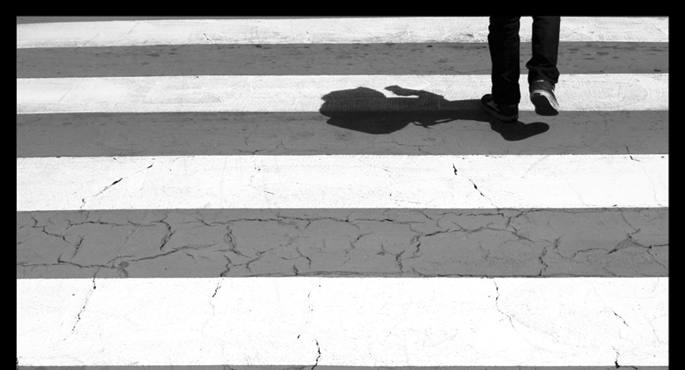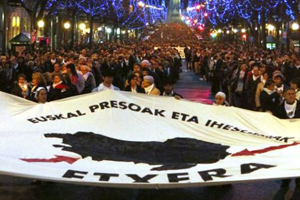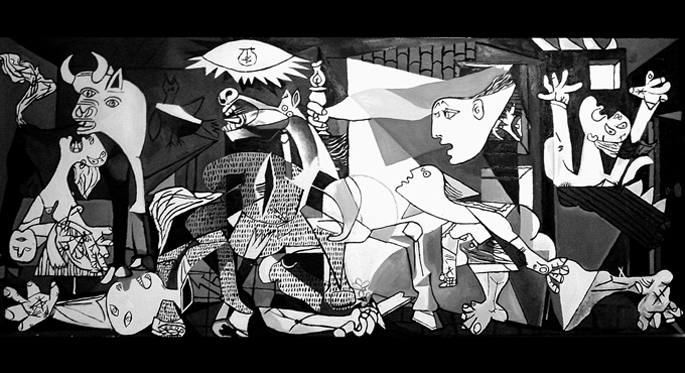Victims, the door to coexistence

ARNALDO OTEGI "All the elected officials who had seen their freedom reduced as a result of ETA's activity, I certainly felt a joy and a relief shared by my cell. I was very happy with them and their families.” This is Otegi's last interview with the SER Chain, in which he shows some of his sensations regarding ETA's statement of October 20. Another phrase extracted from Argia's interview with a group of Nanclares prisoners outside the EPPK in January of this year: “Seeing the suffering of others, we are also excited by ourselves.” What is expressed in both cases is called empathy, the basic feeling necessary in the resolution of any kind of litigation about the victims. And the fundamental feature of empathy is that it can't be represented, that it has to be true.
And, therefore, how can we make credible the gestures of empathy in relation to the conflict we have experienced in the Basque Country? Gradually, through the accumulation of gestures, from the basic reflections to the respect for the rhythms of the main actors of the conflict.
In this respect, the declaration made by the Gernika Agreement has not surprised anyone, there has been no great news, what was expected has been said. Moreover, some aspects and institutions of this agreement have gone much further in the reflections on the victims. However, this declaration of the Gernika Agreement is very important because it is an essential step in order to overcome other barriers.
The good approach to the theme of the VICTIMS has two key objectives in all types of peace processes: one is to take into account the human aspect of the victims, recognize their pain and concretize the compensation for their establishment; the other is coexistence, because the theme of the victims is approached in a consensual way, it is the main door of coexistence.
The declaration adopted by the Gernika Agreement contains almost all the elements to address the issue of victims from their different points of view: the consideration of all victims, respect and mutual recognition as the basis for coexistence; the need for reparation; the truth; the memory; the agreement for the resolution of the conflict; and the rejection of violent avenues for future disagreements.
With these ingredients you can prepare a good meal for coexistence, as long as it is treated with credibility. And, to date, that is the main problem, that there is no credibility between the parties that have to reach a political agreement, but it is also the path that is being travelled, because the credibility between the parties today is greater than it was yesterday. And it shows that these are the statements and the acts that are being taken for granted. A delegation from Bildu was present in the tribute to Joxe Mari Korta, killed by ETA on 9 August in Zumaia; on 2 December also in Azpeitia on the third anniversary of the assassination of Iñaxio Uria; last week the Representatives of Gipuzkoa were present in the tribute to the victims of Franco all parties except the PP;
Among the deficiencies, two stand out: The agreement talks about the need to take steps to channel the situation and the pain of the victims, but it does not indicate what is concrete or what can be done; doing so in depth is not characteristic of that document, but it may be provided with clues. It also renounces the poorest ethical reading, surely because it is more difficult for consensus to be agreed upon, and perhaps still impossible. But that reading is also needed when it comes to victims, violence by ETA or the state.
After all, this is a significant step, but the individual declaration of the Abertzale left that was organized in ENAM is still missing. In anticipation of that, those who have misused this Gernika Declaration, which is being prepared a long time ago, or rather, that the Abertzale Left should have it prepared and awaits its its time.
And yes, you can also ask those who have been supporting human rights violations in the state if they do not have to show their evolution, but also in this, the Abertzale left will give more benefit to go ahead with its unilateral path, without waiting for the state to do what it does. Sortu legalization would facilitate the road, as in many other things, but that is not in the hands of the Abertzale left.
Carmen Gisasola aske geratu da astelehenean, kartzelan 24 urte eman ondoren. 1990. urtean atxilotu zuten Gaskoiniako Landetan (Okzitania) eta azken urteetan Zaballako (Araba) kartzelan zegoen preso. Langraitz bideari helduta, hirugarren graduan zegoen Gisasola.
Espainiako Auzitegi Nazionala 50 preso ingururen kaleratzea aztertzen ari da Frantzian igarotako espetxealdia aintzat hartuta, Noticias taldeko egunkariek argitaratu dutenez. Langraiz bideko Josu Garcia Corporales presoa izan daiteke aldaketak eragindako lehena; tramite... [+]
“Langraitz bidea” hautatu duten bi presok, Joseba Urrusolo Sistiagak eta Rafael Caride Simonek, ezker abertzaleari presoen alorrean urratsak emateko eskatu diote Noticias taldeko egunkarietan argitaratutako iritzi artikulu baten bidez.
Espainiako Barne Ministerioa "ETAko preso asko" Langraizko espetxera mugitzeko prestatzen ari da, El Mundo egunkariak gaur dakarren informazioaren arabera. Ermuako Foroak salatu ditu intentzio hauek, eta artikuluan biltzen denez, ekimenaren barnean sartzen da zenbait... [+]
Itzuli Ezinezko Bake Prozesuarekin Konprometitutako Presoak. Hala deitzen diote euren taldeari. Edozelako bake prozesuk aurrera egiten badu Euskal Herrian, presoena izango da gai arantzatsuenetakoa. Langraizko espetxera jo dugu eta zazpi presori egindako elkarrizketa... [+]


















